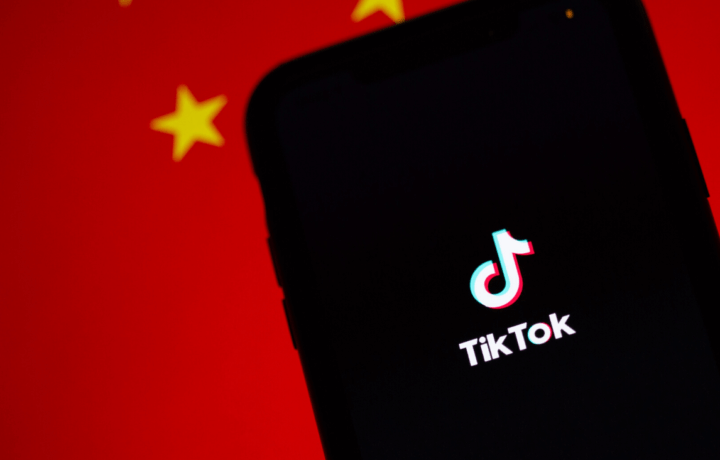The clock could be ticking for the popular social media TikTok, as calls have come for the Chinese-based platform to be banned in the United States. Last week, FBI Director Christopher Wray told lawmakers in Washington that he was “extremely concerned” that Beijing could weaponize data collected on the platform.
Already, TikTok – owned by Beijing-based ByteDance – is prohibited on government devices, and U.S. military service members are told not to use the app on bases.
Calls for A Ban
During a House Homeland Security hearing on current threats to the United States, the FBI chief further warned that Beijing could harness the video-sharing app to influence users or even control their devices.
Wray’s admonition of the social media platform came just days after Sen. Marco Rubio (R-Florida) was joined by U.S. Rep. Mike Gallagher (R-Wisconsin) in calling for a national ban on TikTok. At issue with Sen. Rubio and Rep. Gallagher is the fact that under China’s 2017 National Intelligence Law, all of its citizens and businesses are required to assist in intelligence gathering, and must share any data with Beijing.
It isn’t a partisan issue either.
In an interview over the weekend, Senate Intelligence Committee Chairman Mark Warner (D-Virginia) also expressed his opinion that “TikTok is an enormous threat” and said that users should be concerned that data is being stored “somewhere in Beijing.”
Sen. Tom Cotton (R-Arkansas) previously described the app as “one of the most massive surveillance programs ever, especially on America’s young people.”
Serious Chinese Spyware
Wray told lawmakers that nearly all Chinese companies are essentially required to “do whatever the Chinese governments them to in terms of sharing information or serving as a tool of the Chinese government. And so that’s plenty of reason by itself to be extremely concerned.”
This is not the first time that the popular video-sharing app had been cast in the spotlight.
In 2020, the U.S. government’s Committee on Foreign Investment in the United States (CFIUS), which reviews U.S. acquisitions by foreign acquirers for potential national security risks, even ordered ByteDance to divest TikTok because of fears that U.S. user data could be passed on to China’s communist government.
Former President Donald Trump had attempted to block new users from downloading TikTok, as well as WeChat, but in June 2021, President Joe Biden withdrew a series of Trump executive orders that sought to ban downloads of the app. The Biden administration instead ordered the Department of Commerce to conduct a review of security concerns posed by TikTok, WeChat and other apps.
Separate Operations
For its part, TikTok has tried to suggest any calls to ban it are unnecessary. ByteDance has maintained that U.S. traffic also goes through Oracle servers and that it has strived to keep the U.S. part of the company separate from its Chinese operations.
“As Director Wray specified in his remarks, the FBI’s input is being considered as part of our ongoing negotiations with the U.S. Government,” a TikTok spokesperson told Reuters earlier this month. “While we can’t comment on the specifics of those confidential discussions, we are confident that we are on a path to fully satisfy all reasonable U.S. national security concerns.”
The company has also announced that it is breaking with recent trends in Silicon Valley. Even as Meta, the parent company of Facebook, Amazon, and Twitter have all announced hiring freezes and job cuts; TikTok is seeking to hire nearly 1,000 engineers at its Mountain View, California offices.
Could a Ban Be Coming?
Some security experts have maintained that TikTok could pose a security threat – over how it controls or shares user data. That fact is true actually of most social media platforms, as well as other apps running on a smartphone. The issue with ByteDance’s TikTok goes a little futher.
Not only does it embed its code into a device’s software, but that code may remain active even after the TikTok app is closed. Once embedded on a phone or other device, it can collect and distribute information back to China.
Even if that information isn’t actually sent up the ladder to officials in Beijing, a threat still exists. Because the devices track movement and locations of individuals, there is the concern that those individuals could be compromised as a result.
At issue is still whether it is possible to actually ban TikTok.
Dr. Clifford Lampe, professor of information and associate dean for Academic Affairs at the School of Information at the University of Michigan, said that such a ban isn’t likely to happen. First, it would require Apple and Google to remove it from their respective app stores, and even then it is likely some users could find a workaround.
The bigger issue said Lampe is that “free speech laws in the U.S. do make it hard to shut down a company that isn’t actually breaking the law.”
That point was reinforced by technology analyst Jim McGregor of TIRIAS Research, who told ClearanceJobs, “We’ve seen this before. I doubt that it would get implemented. It’s difficult to overcome the ‘free speech’ argument considering it’s the First Amendment to the U.S. Constitution.”
Instead, experts suggest the better course of action is to reinforce the dangers the app presents – and convince users that watching cute cat videos on the platform isn’t likely worth the privacy and security issues that come with it.



